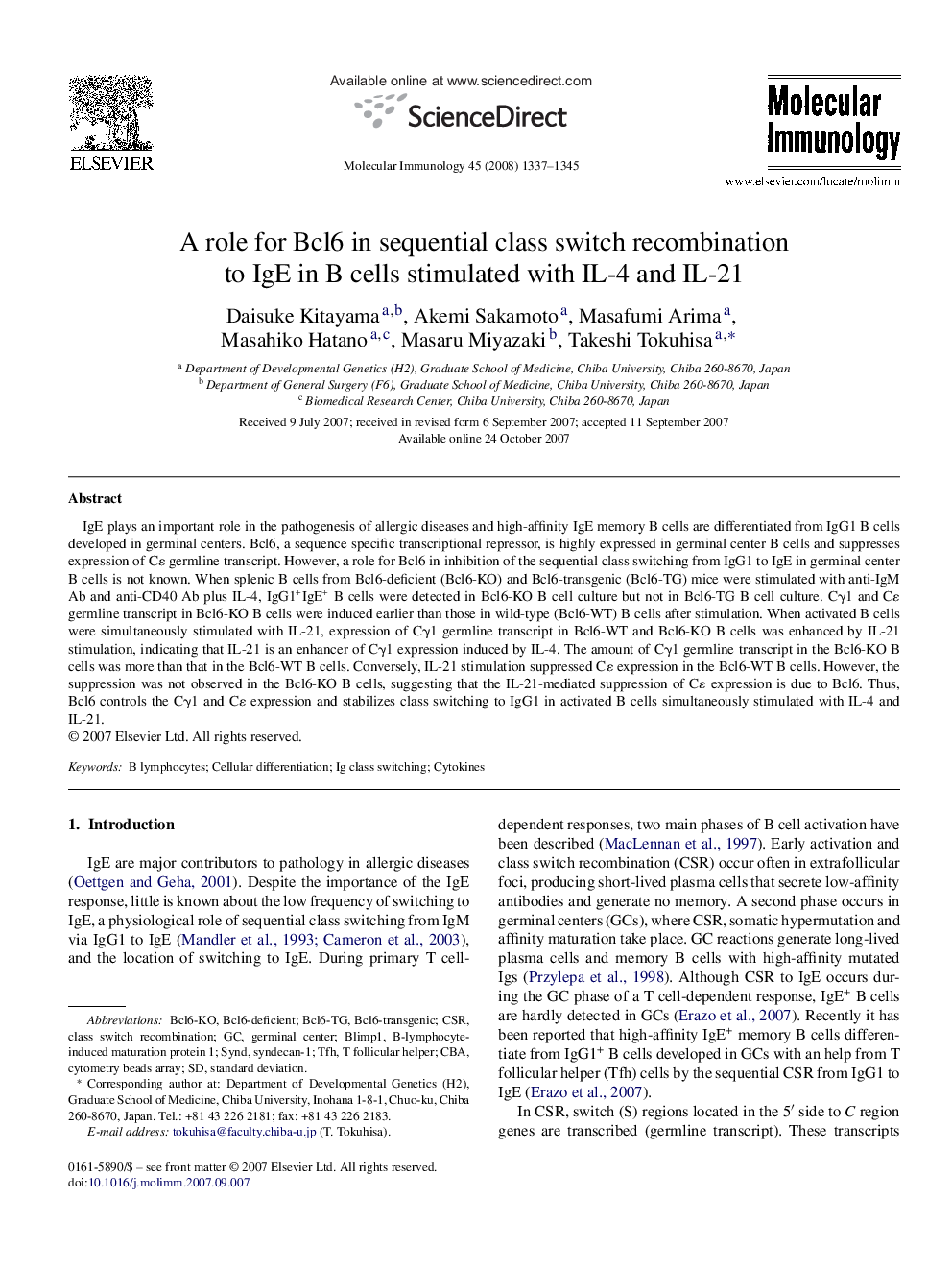| Article ID | Journal | Published Year | Pages | File Type |
|---|---|---|---|---|
| 2832818 | Molecular Immunology | 2008 | 9 Pages |
IgE plays an important role in the pathogenesis of allergic diseases and high-affinity IgE memory B cells are differentiated from IgG1 B cells developed in germinal centers. Bcl6, a sequence specific transcriptional repressor, is highly expressed in germinal center B cells and suppresses expression of Cɛ germline transcript. However, a role for Bcl6 in inhibition of the sequential class switching from IgG1 to IgE in germinal center B cells is not known. When splenic B cells from Bcl6-deficient (Bcl6-KO) and Bcl6-transgenic (Bcl6-TG) mice were stimulated with anti-IgM Ab and anti-CD40 Ab plus IL-4, IgG1+IgE+ B cells were detected in Bcl6-KO B cell culture but not in Bcl6-TG B cell culture. Cγ1 and Cɛ germline transcript in Bcl6-KO B cells were induced earlier than those in wild-type (Bcl6-WT) B cells after stimulation. When activated B cells were simultaneously stimulated with IL-21, expression of Cγ1 germline transcript in Bcl6-WT and Bcl6-KO B cells was enhanced by IL-21 stimulation, indicating that IL-21 is an enhancer of Cγ1 expression induced by IL-4. The amount of Cγ1 germline transcript in the Bcl6-KO B cells was more than that in the Bcl6-WT B cells. Conversely, IL-21 stimulation suppressed Cɛ expression in the Bcl6-WT B cells. However, the suppression was not observed in the Bcl6-KO B cells, suggesting that the IL-21-mediated suppression of Cɛ expression is due to Bcl6. Thus, Bcl6 controls the Cγ1 and Cɛ expression and stabilizes class switching to IgG1 in activated B cells simultaneously stimulated with IL-4 and IL-21.
